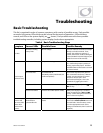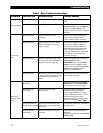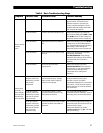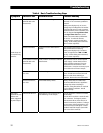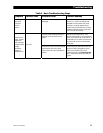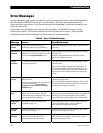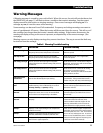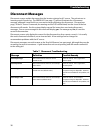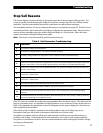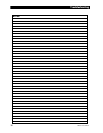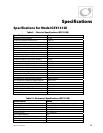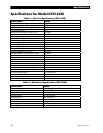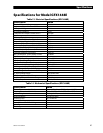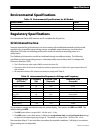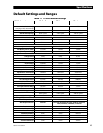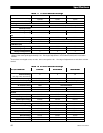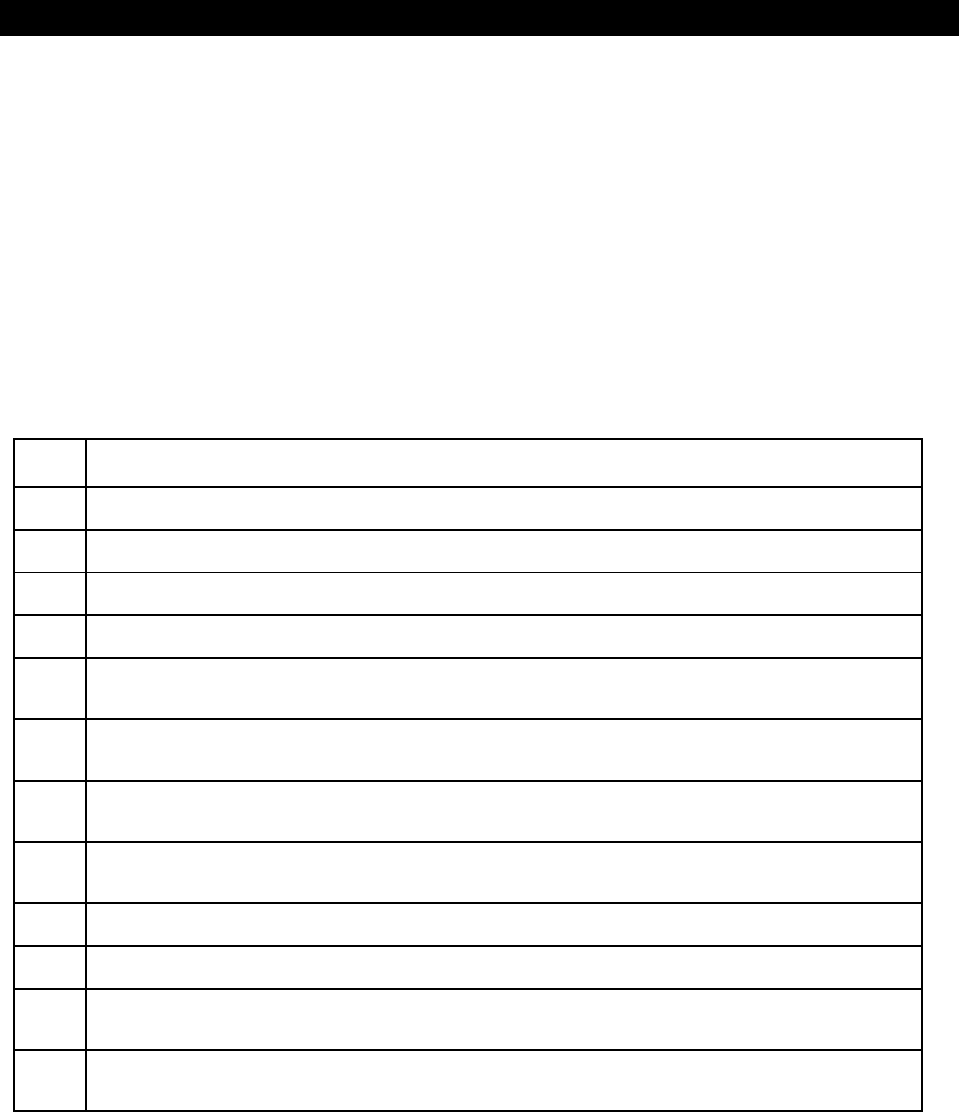
Troubleshooting
900-0112-01-00 Rev A 37
Stop Sell Reasons
This screen displays a numerical value to show the reason the inverter stopped selling power. The
screen is used for troubleshooting by OutBack Technicians, though often this can indicate normal
operation. See the system display manual for instructions on viewing these messages.
The acceptable limits for AC source voltage and frequency are displayed on page 42. If the AC source
exceeds these limits, the inverter will stop selling and display the appropriate code. After the source
returns to the acceptable range, the system display will begin a 1-minute timer. When the timer
expires, the inverter will begin selling power again.
Note
: This screen is only functional for grid-interactive inverters.
Table 8 Grid-Interactive Troubleshooting
Code Definition
0
The inverter is selling. Normal operation.
1
The inverter is charging batteries. It is unable to sell while charging.
2
The battery voltage is below the target point. This is usually due to lack of renewable energy.
3
1-minute reconnect timer is in effect. This timer takes effect as soon as the AC source becomes acceptable.
4
The AC source voltage is below the acceptable limit. Once it is restored, the display will change to code 3 and
start the 1-minute timer. This code will also appear if the AC source fails or is completely disconnected.
5
The AC source voltage is above the acceptable limit. Once it is restored, the display will change to code 3 and
start the 1-minute timer.
6
The AC source frequency is below the acceptable limit. Once it is restored, the display will change to code 3
and start the 1-minute timer.
7
The AC source frequency is above the acceptable limit. Once it is restored, the display will change to code 3
and start the 1-minute timer.
8
The inverter has been commanded to disconnect from the AC source.
9
The inverter has detected an “island” condition. The AC source frequency is unstable.
10
The inverter has lost synchronization with the AC source. This is usually the result of a rapidly-changing
frequency.
11
The inverter went into an overcurrent condition while attempting to sell. This is usually caused by miswiring,
incorrect programming, or an unstable AC source.
If the AC source is unstable, it may become unacceptable before the timer expires. This will cause the
timer to continually reset. It is possible for brief fluctuations to occur that are too fast to be seen on a
DVM. If this happens, the appropriate code will still appear on the system display for a short time to
help troubleshoot the problem.
If the utility grid is not tightly regulated or has other problems, the act of selling may cause
fluctuations and force the inverter to disconnect itself with one of these codes.
In addition to problems with the utility grid, other external conditions can cause fluctuations or
problems with selling. Undersized wires or bad connections can result in local voltage problems.
Long wires or transformers in the AC line can create inductances which will register as either voltage
or frequency fluctuations.



